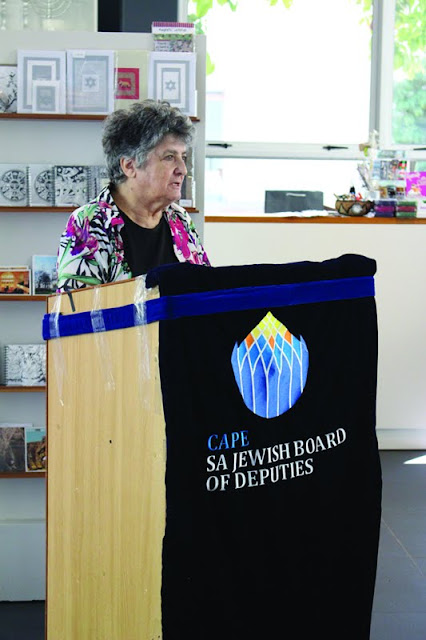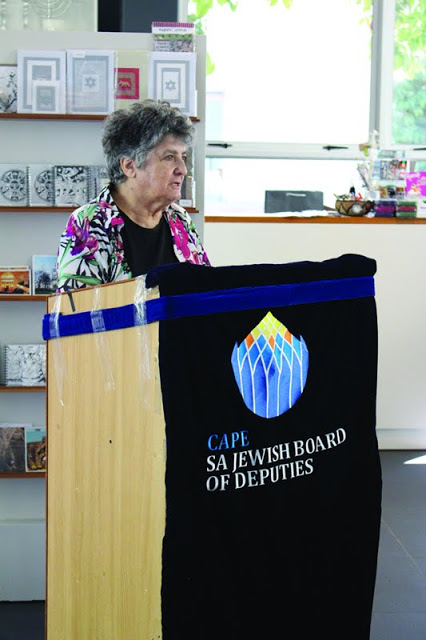
In 2010 King Abdullah ll of Jordan at the Plenary Session of the 65th UN General Assembly said: “It is [also] essential to resist forces of division that spread misunderstanding and mistrust especially among peoples of different religions.
The fact is, humanity everywhere is bound together, not only by mutual interests, but by shared commandments to love God and neighbour; to love the good and neighbour. This week, my delegation, with the support of our friends on every continent, will introduce a draft resolution for an annual World Interfaith Harmony Week. What we are proposing is a special week, during which the world’s people, in their own places of worship, could express the teachings of their own faith about tolerance, respect for the other and peace.”
As a result the UN unanimously agreed that the first week in February would be UN World Interfaith Harmony Week. Since 2012 the Jewish Board of Deputies has been hosting an event during that week.
This year the Board hosted a panel entitled, ‘Racism ends with me’. Stanley Henkeman, Head of ‘Building an Inclusive Society’ at the Institute for Justice and Reconciliation (IJR) chaired the event. Rabbi Greg Alexander, Rabbi at Cape Town Progressive Jewish Congregation, Karen Barendsche, the Regional Coordinator for South Africa for the ‘United Religious Initiative’ (URI) and Uzair Ben Ebrahim, Peace and Harmony ambassador for ‘A Common Word Among Youth’ (ACWAY) Southern Africa brought powerful messages of how to combat racism through their different faiths and own personal beliefs.
Rabbi Alexander opened the proceedings with a lesson from the Talmud which many within the community know, that of the belief that if a life is destroyed, it is as if a whole world has been destroyed. However, another manuscript within the Talmud demonstrates Jewish particularism, and states that if a Jewish life is destroyed it is as though a whole world has been destroyed. We see from this that people have an interest in self- preservation, putting ourselves before the needs of anyone else. There was, and still is, a real threat of Jewish security, and we are always facing an existential crisis. However, he concluded by saying that the real tension between self-preservation and protecting all is that we are all made in the image of God.
The theme that we are all created in the image of God continued, with Karen speaking about the role of URI. She understands all communities, faith, gender, ethnic and more, to be part of the human experience. We all intersect at some point, and that our role is to build mutual understanding in the service of peace and justice. She asked the floor, “Who of humanity would you like to exclude? The answer is none.” However, when asked whether there are enough places where we are free to tell out stories and listen to others, Karen responded that there is still an embedded fear in just that. There is a deep seated fear still present in South Africa, with language in itself a massive issue. However, community-based, grass root projects must be established based on common principle of faith, peace and love.
Uzair has a fascinating story to tell. Coming from a Muslim background, he learned Arabic as a child. However, when he grew up, he thought it would be interesting to learn Hebrew, to understand Jewish and Israeli culture. He received some criticism, some in his community thought that he was learning the language of the enemy. However, he believed (and believes) that you cannot understand the ‘other’ without learning their culture, their language and their heritage. Once he began studying, he saw the similarities between not only the language, but also the culture, the heritage, and the love of humanity.
Race in South Africa today, as many over the past few months have written, is an issue that has not just ‘gone away’. To eliminate racism, one has to go to the root of what it is. What created and maintains racism in our society? Racism, according to Henkeman, is about humiliation. It’s about the way in which we speak to each other, look at one another, think about the ‘other’, that causes the humiliation of the ‘other’. Once we are humiliated, we turn on each other. But, once you deal with humiliation, and think about how the ‘other’ thinks and feels, we can create positive ways in fighting racism today.
In closing the event, Gwynne Robins said her mitochondrial DNA proved that she was from Africa, yet she also had in her genes the need to protect her family from the one over the hill eyeing their water hole and cave. Although torn between our common humanity and our common fear of the ‘other’, we need to learn to communicate with each other and this event was an attempt to break down the racial stereotypes dividing us.
Uzair, a truly remarkable young man, noted that the event name should not have been ‘Racism ends with me’, but rather ‘Love and understanding begins with us’. And so interfaith and the role it can play in South Africa’s fight against racism should be not confined to one week, but something about which we as South African Jews should always think.











